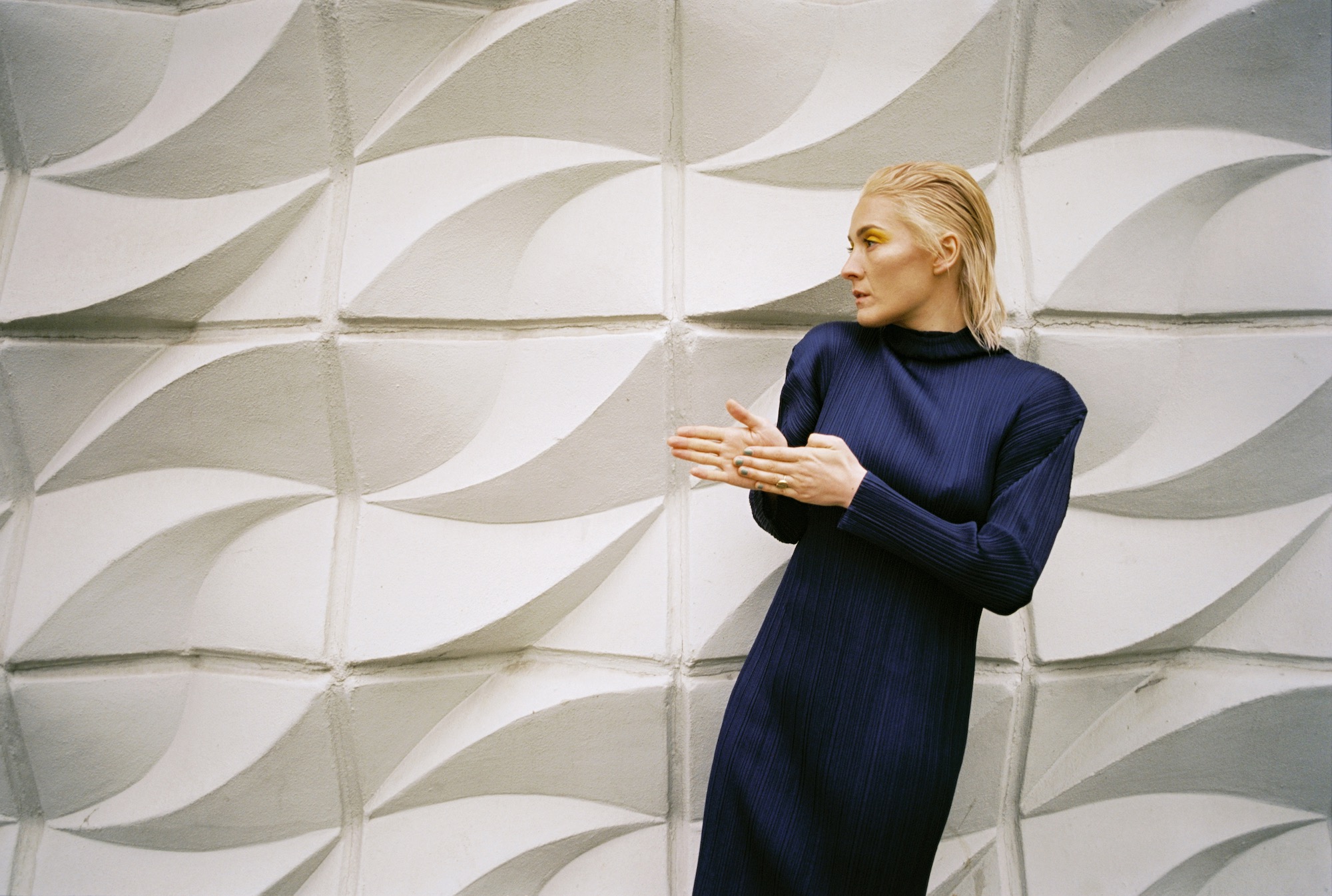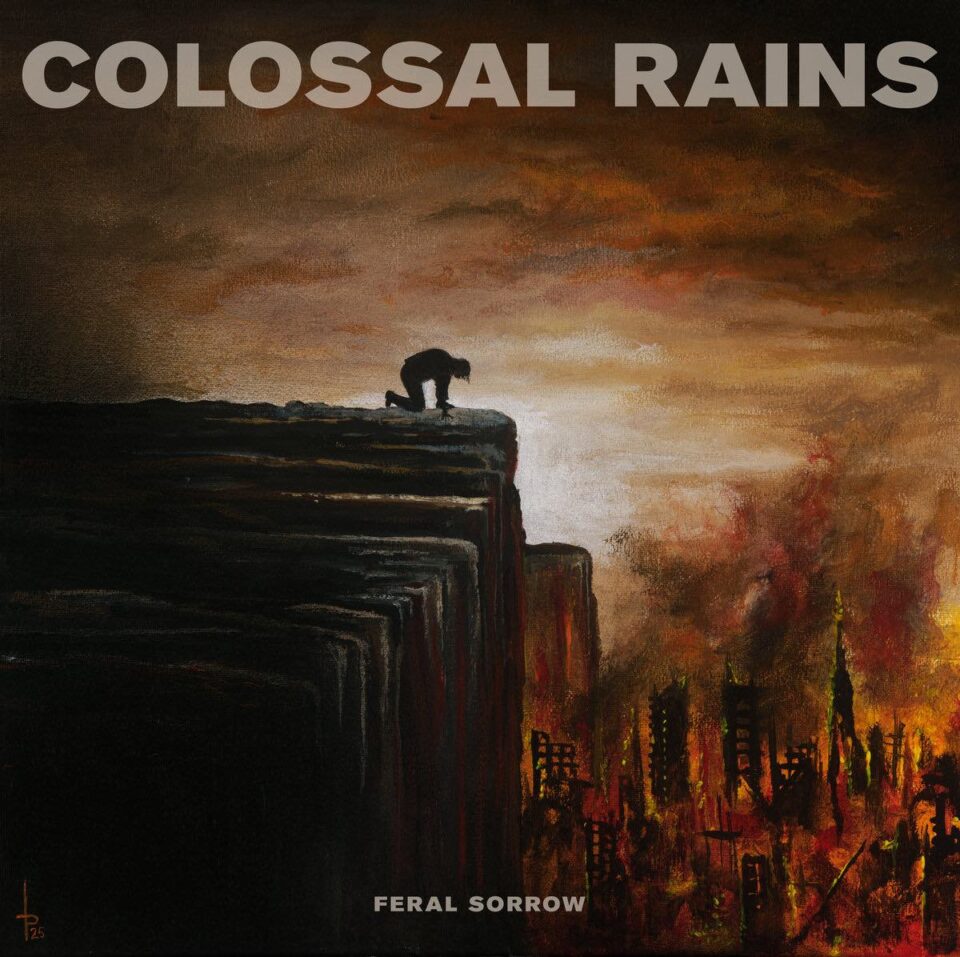A horse inspired the title of Cate Le Bon’s new record. “I was watching this TV program,” she recalls, “and a woman had built a fake kitchen in a stable and trained this little horse to close the kitchen cabinets one at a time with its rear end. When the horse finished, it would go to the woman for its reward, which was a carrot.” Le Bon, who describes her living situation at the time as “wholly surreal,” found the context of this reward just as unsettling. “It felt wrong that this animal had to fulfill this wholly humiliating task to collect the reward,” she says. “It made me start thinking about the sinister implications of the word ‘reward’ and who dictates the reward.”
It was with this thought in mind that Le Bon planted the seeds for titling her fifth album. The songs comprising Reward, though, came together far more gradually, because she didn’t know she was writing them. During a year spent completely alone in a remote part of England called the Lake District—the “wholly surreal” setting named earlier—she “completely changed the architecture” of her life. There, she fell into a “pretty vigorous routine of being in woodworking school at 8 a.m., finishing at 6 p.m., and doing homework.” Music thus repositioned itself not as her focus, but as her “hobby, something that I turned to as a break, a cathartic process.” Every time she sat down with her piano, music flowed from her fingers—but with no intentionality, no thoughts about album number five. “I wasn’t really aware that I was writing Reward,” she admits.
Woodworking and songwriting dictated almost the entirety of Le Bon’s life in the Lake District, so the former art—certainly the newer of the two crafts to her—subconsciously informed the latter. “It was absolutely not intentional,” says Le Bon, “but the process for recording Reward mirrored the process of making a piece of furniture. I was bound by my material. At times, it worked and everything was flowing, and at times, it was tempestuous.” As she describes the parallels between the two arts, she all but anthropomorphizes her creations, speaking of them as though they have individual personalities, feelings, and goals. “The songs would reject things that didn’t make sense,” she says. “There was no compromise. They were stubborn. I couldn’t just shift a chord or move [any random part]. The songs were solid structures,” just as wooden furniture is.
It’s no surprise, based on Le Bon’s recounting, that Reward is immaculately sculpted and full of life. Its ten songs are her most direct, delicate, and precisely rendered to date. Her signature art-rock surreality is still present, but it’s relegated to the music’s margins in favor of slowly poured brass, leering chimes, diamond-clear guitars, deeply reverberant pianos, simmering but tranquil bass lines, shapeshifting percussion, and, of course, Le Bon’s unmistakable voice. Her light Welsh accent, as ever, punctuates her odd, drawn-out vocal delivery, which often exists exactly halfway between a resigned sigh and a theatrical wail.
“It was absolutely not intentional, but the process for recording Reward mirrored the process of making a piece of furniture. I was bound by my material. At times, it worked and everything was flowing, and at times, it was tempestuous.”
On the boldly-titled “Sad Nudes,” for example, Le Bon sounds equally languorous and enthused as she coos the phrase “sad nudes in my room,” and as she does, spikes of chimes unspool just off-beat to emphasize the competing melancholy, titillation, secrecy, and anxiety of, well, sending nudes. On more disorderly tracks such as “Magnificent Gestures” and “Mother’s Mother’s Magazines,” the instruments explode with such joy that they paint Le Bon’s voice in almost thespian shades (especially on the latter track, which ends in nearly two minutes of riotous, brass-driven cacophony à la “What’s Not Mine,” the final track of Reward’s 2016 predecessor, Crab Day).
Reward’s first two singles, though, exist in a class all their own. On the pristine chorus of “Daylight Matters,” Le Bon extracts immense sadness from the phrase “I love you” as she repeats it over doleful saxophones. When she follows this line with “but you’re not here” and “but you’ve gone,” the void in her life engulfs both her and the listener. Likewise, the synth bubbles and bass that introduce “Home to You” at first scan as sprightly and even cute, but as the track concludes, they emphasize the gloom in Le Bon’s repeated intonations of “last time for all time gone.” Both songs are utterly gorgeous and devastating, not to mention shockingly forthright.
Despite the newfound immediacy of Reward’s lyrics, Le Bon is hesitant to dive into the tracks’ individual stories beyond their Lake District genesis, though she will say the album is her most personal. Instead, she speaks of the album’s topics in generalities, describing Reward as “an exploration of the absurdity of change” (such as, you know, uprooting your life to live in the middle of nowhere and build furniture).
Change, Le Bon says, “brings a particular type of grief that is often abstract.” As Reward coalesced, she experienced many “quite hard and abrupt” changes, such as the one she vaguely recounts on the album’s opener, “Miami.” “Never be the same again,” Le Bon beckons over eerie chimes and subdued brass, before arriving at a particularly pivotal four-word phrase: “Love neglected by reward.”
“For me, ‘reward’ is a wholly sinister word unless you dictate your own reward,” says Le Bon. Although that trick horse first got her thinking about the concept, woodworking unexpectedly reminded her of reward’s role in her life. “When I was making pieces of furniture,” she says, “someone would inevitably say, ‘Can I have it?’ And I would say, ‘Yeah, of course.’ It was so easy for me, which a lot of people at school couldn’t understand, because I’d put so much work and time into this piece.” Here, she ties her generosity to her songs: “It’s that letting go you learn to do in music,” she says. “From music, you learn that the making is the reward.” FL







